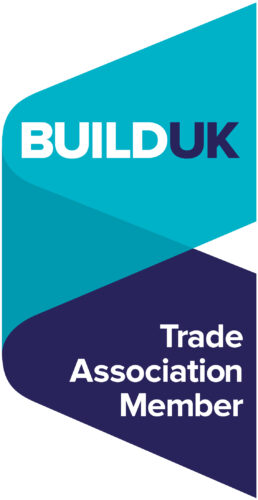The message is clear: Stay at home, avoid all social interaction, and only travel to work if absolutely necessary.
Over the weekend, Alok Sharma, Secretary of State for Business, was very clear that, where work cannot be undertaken from home, people should go to work but employers must follow Public Health England (PHE) guidance. Build UK on behalf of the Construction Leadership Council (CLC) has developed Site Operating Procedures specifically for construction sites to ensure they are working in accordance with that guidance.
COVID-19 Business Measures
Coronavirus Business Interruption Loan Scheme – now live
The government’s Coronavirus Business Interruption Loan Scheme went live last week. The scheme, which will support the continued provision of finance to UK small and medium-sized (SME) businesses during the COVID-19 outbreak, will be delivered by the British Business Bank. The scheme will temporarily replace the Bank’s Enterprise Finance Guarantee scheme, with an additional £1 billion made available on top of existing support supplied via the programme.
The government has since increased the scope of the Business Interruption Loan Scheme to £5 million, with no interest due for the first twelve months. The government will provide lenders with a guarantee of 80% on each facility to give lenders further confidence in continuing to provide finance to SMEs. The scheme is available through more than 40 accredited lenders, which are listed on the British Business Bank website.
The Covid Corporate Financing Facility, which is the Bank of England’s lending facility for larger firms, also launched last week. The scheme provides a quick way to raise working capital for companies that are experiencing severe disruption to cashflows.
Further details of the Coronavirus Business Interruption Loan Scheme can be found on the British Business Bank website. Details of the Covid Corporate Financing Facility are available on the Bank of England’s website.
The Coronavirus Job Retention Scheme
The Coronavirus Job Retention Scheme is available to all UK employers giving them access to support so they can continue paying part of their employees’ salary during the coronavirus crisis. The aim of this scheme is to protect the jobs of employees who would otherwise have been laid off during this crisis.
Under the scheme HMRC will reimburse 80% of the wage costs of a worker who has been ‘furloughed’, up to a cap of £2,500 per month. A furloughed worker is someone who will not be working but kept on the payroll rather than being laid off. The Chancellor has stated that employers can top up salaries further if they choose to.
Eligibility and access
All UK businesses are eligible for the Coronavirus Job Retention Scheme. To apply they will need to designate affected employees as furloughed workers and notify the employees of this change. Changing the status of employees remains subject to existing employment law and, depending on the employment contract, may be subject to negotiation. Information about the employees that have been furloughed and their earnings should be submitted to HMRC through a new online portal. HMRC will confirm further details on what information is required in due course.
HMRC has said it is working urgently to set up a system for reimbursement to facilitate payments to employers.
The Coronavirus Job Retention Scheme is specifically aimed at supporting jobs through reimbursing salaries. Businesses that require short term cashflow support may be eligible for a Coronavirus Business Interruption Loan.
VAT Deferral
The government is also deferring all VAT payments for three months from 20 March 2020 until 30 June 2020. The scheme will be automatic, applying to all UK businesses with no applications required. Businesses will not need to make a VAT payment during this period. Taxpayers will be given until the end of the 2020/21 tax year to pay any liabilities that have accumulated during the deferral period. VAT refunds and reclaims will continue to be paid by the government as normal during this time.
Extended access to Statutory Sick Pay (SSP)
As part of a package to widen the scope of SSP and make it more accessible, SSP entitlement will begin from the first day of sickness absence, rather than the fourth, for those who have COVID-19,or self-isolate in accordance with government guidance.
SSP relief for SMEs
Small and medium-sized businesses will be allowed to reclaim SSP paid for absence due to COVID-19. The refund will cover up to two weeks’ SSP per eligible employee who has been off work because of COVID-19. Employers with fewer than 250 employees will be eligible, with the size of an employer being determined by the number of people they employed as of 28 February 2020. Employers will be able to reclaim expenditure for any employee who has claimed SSP as a result of COVID-19. Employers should maintain records of staff absences, but employees will not need to provide a GP fit note.
The eligible period for the scheme commenced the day after the regulations on the extension of SSP to self-isolators came into force on 13 March 2020. The government intends to work with employers over the coming months to set up the repayment mechanism for employers as soon as possible. It stated that existing systems are not designed to facilitate employer refunds for SSP.
Off-payroll (IR35) Rules to Private Sector Delayed
HMRC has delayed the introduction of off-payroll rules to the private sector (which are known as IR35)
to the private sector as part of its measures to support businesses through the coronavirus (COVID-19) pandemic.
The reforms will shift the responsibility for assessing employment status to the organisations employing individuals. The rules would have applied to contractors working for medium and large organisations in the private sector and were due to come into effect on 6 April 2020. The rules will now take effect on 6 April 2021.
Help for Self-employed Workers
Income tax deferral
Income tax payments due on 31 July 2020 under self assessment will be deferred to 31 January 2021. The scheme only applies to individuals who are self-employed. It is automatic, with no applications required, and no penalties or interest for late payment will be charged during the deferral period.
Claim a grant through the coronavirus (COVID-19) Self-employment Income Support Scheme
If you’re self-employed or a member of a partnership and have lost income due to coronavirus this scheme will allow you to claim a taxable grant worth 80% of your trading profits up to a maximum of £2,500 per month for the next 3 months. This may be extended if needed. The scheme is not yet open. HMRC will contact you if you are eligible for the scheme and invite you to apply online. Individuals do not need to contact HMRC now and doing so will only delay the urgent work being undertaken to introduce the scheme.
Who can apply
You can apply if you’re a self-employed individual or a member of a partnership and you:
- have submitted your Income Tax Self Assessment tax return for the tax year 2018-19
- traded in the tax year 2019-20
- are trading when you apply, or would be except for COVID-19
- intend to continue to trade in the tax year 2020-21
- have lost trading/partnership trading profits due to COVID-19
Your self-employed trading profits must also be less than £50,000 and more than half of your income come from self-employment. This is determined by at least one of the following conditions being true:
- having trading profits/partnership trading profits in 2018-19 of less than £50,000 and these profits constitute more than half of your total taxable income
- having average trading profits in 2016-17, 2017-18, and 2018-19 of less than £50,000 and these profits constitute more than half of your average taxable income in the same period
If you started trading between 2016-19, HMRC will only use those years for which you filed a Self-Assessment tax return. If you have not submitted your Income Tax Self-Assessment tax return for the tax year 2018-19, you must do this by 23 April 2020. HMRC will use data on 2018-19 returns already submitted to identify those eligible and will risk assess any late returns filed before the 23 April 2020 deadline in the usual way.
How much you’ll get
You’ll get a taxable grant which will be 80% of the average profits from the tax years (where applicable):
- 2016 to 2017
- 2017 to 2018
- 2018 to 2019
To work out the average HMRC will add together the total trading profit for the 3 tax years (where applicable) then divide by 3 (where applicable) and use this to calculate a monthly amount. It will be up to a maximum of £2,500 per month for 3 months. The grant will be paid directly into your bank account, in one instalment.



Recent Comments